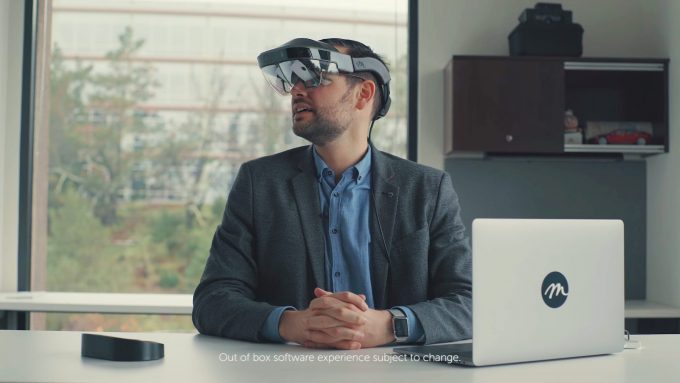Meta made sizeable waves in the AR space in early 2016 with the announcement, demonstration, and pre-order launch of their Meta 2 development kit. The company has published an unboxing video of the system, but with just over two weeks until 2017, it doesn’t appear the company will hit its 2016 delivery goal.
Meta opened pre-orders for the Meta 2 development kit back in Q1 of 2016 for $949, saying that orders would be filled in 2016. A new video this week from the company (seen at the top of this article) shows an unboxing of the system and makes a direct pitch interested developers to lock in the $949 price before it goes up at the end of 2016.
The video doesn’t make any mention of a release date for the Meta 2 development kit, but the company’s website reads the same as it has since pre-orders opened, “The product is available for preorder now and will ship later this year. We will be in communication with preorder customers on timing.”
The unboxing video shows everything that comes with the kit, which includes a soft sleeve-case and a helpful resting stand for the headset to prevent its lenses from being scratched when not on your head. At the end we see a brief moment of a welcome sequence which shows a worrying amount of tracking jitter, even with minimal movement of the headset.
Back in March, we went hands-on with an earlier prototype of the Meta 2 at the company’s office and concluded that the promising headset could be an eye-opening AR platform for developers, with potential to “do for augmented reality what Rift DK1 did for virtual reality.” Since October, Road to VR has reached out to Meta on multiple occasions (to multiple points of contact) for an update on the release status of the Meta 2, but hasn’t received any response.
Meta told us previously that they expected to be able to supply “tens of thousands of units” in 2016, though the company hasn’t said how many pre-orders have been received.
With just over two weeks remaining in 2016, the chances of any substantial number of Meta 2 dev kits being delivered by the end of the year seems unlikely, but hopefully it won’t be too far into the New Year before devs start receiving headsets en masse.







